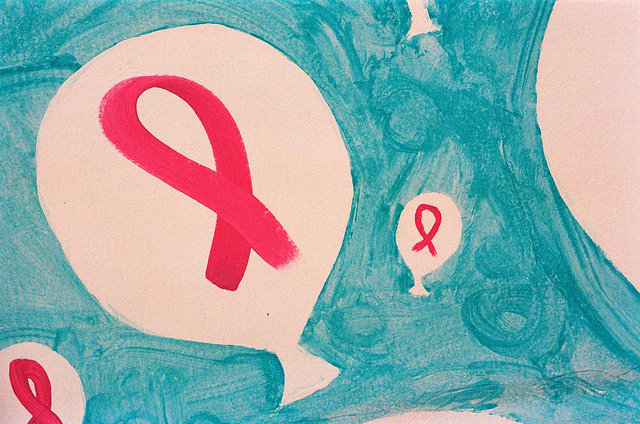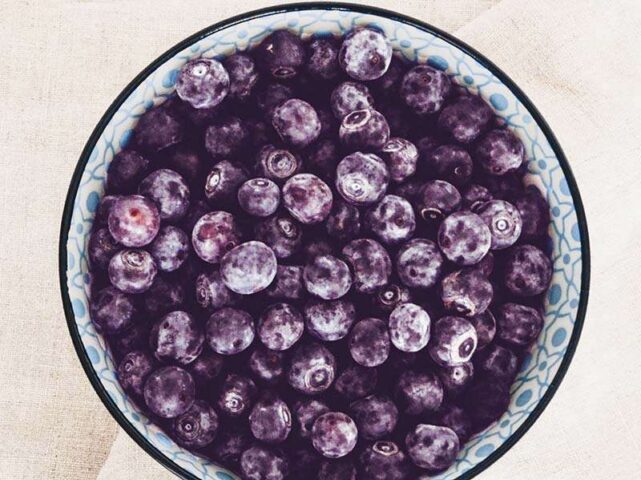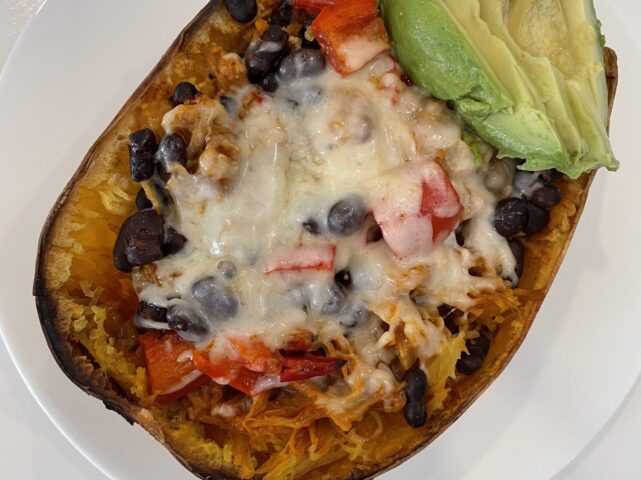Image via Steve Snodgrass/Flickr
How does diet play a role in having breast cancer?
For those of us with cancer, food is not the enemy.
I was diagnosed with stage 3 breast cancer in May 2014. I, like many newly diagnosed women, wondered what I could have done to prevent the cancer, because I couldn’t imagine it just happened for no reason. Then, all of those health segments on the TODAY Show and headlines on medical studies in the New York Times jumped out at me in a way they never did before.
I started to think my diet was the culprit. Had I eaten too much soy? Drank too much wine? Indulged in too much hormone-laden cheese? Not had enough mushrooms in my diet? Should I have been drinking green tea every day?
Truth is, many of us have no idea why we get cancer, and obsessing over what we have and haven’t ingested only serves to make us feel like we deserved to get this terrible disease. And, let’s get this straight: No one deserves to get cancer.
Yes, I ate non-organic foods, enjoyed red meat cooked on the grill, had slices of birthday cake at the parties I took my young kids to. But, the reason I got breast cancer wasn’t due to those choices—I got breast cancer because I have a genetic mutation that causes breast cancer. Now, that’s not to say that what we eat doesn’t play a role in our overall health and that we can’t make food choices that reduce the risk of disease, but food is not the enemy.
When I tried to stay on track with all of those health study stories, I did start to see food as my enemy. Many of the studies contradicted each other, which was confusing. And, if I eliminated soy, dairy, alcohol, sugar, canned tomatoes, farmed salmon, red meat, artificial sweeteners, vegetable oils, white flour, and so on, what would I eat?
I decided that the way for me to eat to avoid cancer was to eat the way the medical establishment usually advises for general health: A high-fiber, plant-based diet with limited sugars, alcohol and artificial ingredients. Here’s some specific recommendations I received from dietitians throughout my cancer journey: Make red meat an occasional protein in your diet; look for chicken and dairy products that are marked “hormone free;” avoid sodas and energy drinks; focus on whole foods instead of packaged; eat soy in moderation (my breast cancer was related to estrogen); limit alcohol to three or so drinks a week; exercise regularly.
I want to feel like I’m doing everything I can to prevent a recurrence, so I follow these guidelines as best I can. I know that my body feels better when I eat cleanly and simply and get enough exercise, but I don’t police myself because I don’t want to get thrown into despair over a piece of candy or an extra beer on Saturday night, as though these choices will bring cancer upon me again.
While it’s good to have a sense of agency with regard to our own health, if it sets us up for self-blame, then it’s not helpful. And, if I cut out all the edible things that bring me pleasure, I would feel I’m punishing myself. And, I don’t need to be punished for having cancer. It’s not my fault.
Rebecca Weiss is a wife, mother, and cancer survivor living in New Jersey. Her professional roles include writer, marketing communications expert, and media relations guru. In 2015 she founded Bob’s Boxes, a 501(c)(3) charity that provides post-mastectomy care packages for women with breast cancer.








